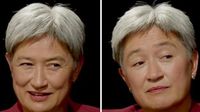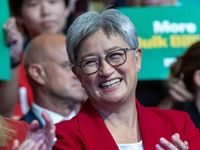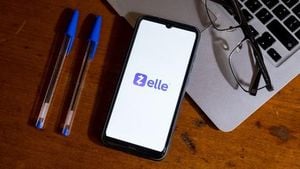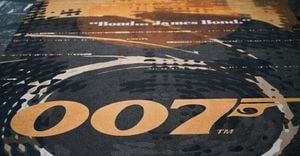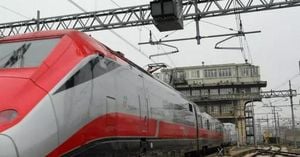In a bold prediction, Labor Senator Penny Wong has drawn parallels between the contentious debate surrounding the Voice to Parliament and the historic fight for marriage equality in Australia. Speaking on the Betoota Talks podcast, Wong expressed her belief that in ten years, the public will look back at the Voice debate with a sense of incredulity, similar to how many now view the arguments against marriage equality.
Wong, who is also the Senate leader for the Labor Party, stated, "I think we’ll look back on it in ten years’ time and it’ll be a bit like marriage equality, don’t you reckon?" She emphasized that the controversy surrounding the Voice will eventually seem trivial, noting how the marriage equality debate was once a major issue that has since faded from public consciousness. "Like, kids today, or even adults today, barely kind of clock that it used to be an issue. Remember how big an issue that was in the culture wars? Blimey, just endless," Wong remarked.
The proposed Voice to Parliament aimed to establish a permanent advisory body of Aboriginal and Torres Strait Islander representatives to inform the Parliament on matters affecting First Nations people. However, the referendum to enshrine this body in the Constitution was rejected by voters, leaving many Indigenous leaders and advocates disappointed.
Despite this setback, Wong remains optimistic about the future of the Voice initiative. She highlighted that Prime Minister Anthony Albanese had approached the issue with sincere intentions, stating, "He’s not a pull the pin kind of guy. Yeah, [Anthony Albanese] thought it was the right thing to do, and a lot of First Nations leaders wanted the opportunity." Wong's comments come at a time when the government is facing criticism for the failed referendum.
Opposition Leader Peter Dutton has been vocal in his criticism of the Albanese government's handling of the Voice referendum. He accused the Prime Minister of wasting resources, claiming, "I think the nation was aghast when the Prime Minister spent four, $50m and sought to divide us over the voice debate on heritage and on cultural grounds." Dutton's remarks reflect a broader skepticism within the opposition about the government's priorities.
On April 27, 2025, Albanese faced intense questioning from journalists regarding his decision to abandon the Voice initiative following the referendum's failure. During a heated exchange, journalist Mark Riley pressed, "The Voice, you told us, was important for Australia. It was important for who we are, for our standing in the world. It was a polite request from Indigenous people and you dropped it cold afterwards. Why?" Albanese responded, "Because I respect the outcome. We live in a democracy." When pressed further about his personal views, he stated, "It is gone," indicating a definitive shift away from the initiative.
Wong's appearance on the Betoota Talks podcast was notable not only for her comments on the Voice but also for her candid reflections on her identity. She humorously addressed the media's focus on her being a lesbian, stating, "I did sort of encounter some people who were... fixated. I remember one bloke asked me something, I said, ‘Do you ask John Howard what it’s like to be married and straight?’" Wong's remarks highlight the ongoing discussions about representation and identity in politics.
Additionally, the podcast has been part of a broader strategy by the Albanese government to engage with voters through new media platforms. The Betoota Advocate, known for its satirical take on political issues, has been contracted to assist the Labor Party in this endeavor. Wong's appearance was part of this effort, showcasing a more relatable side of politicians in an increasingly digital age.
As the election campaign heats up, both Albanese and Dutton are ramping up their efforts in marginal seats across Australia. With only a few days left until the election, the stakes are high for both leaders. Wong's predictions regarding the Voice to Parliament may resonate with many voters who are looking for a forward-thinking approach to Indigenous representation.
In the end, Wong's insights reflect a broader trend of re-evaluating contentious issues in light of changing societal values. Just as marriage equality transformed from a divisive topic to a widely accepted norm, the Voice to Parliament may one day be viewed in a similar light, as Australia continues to grapple with its identity and the role of Indigenous voices in the democratic process.
